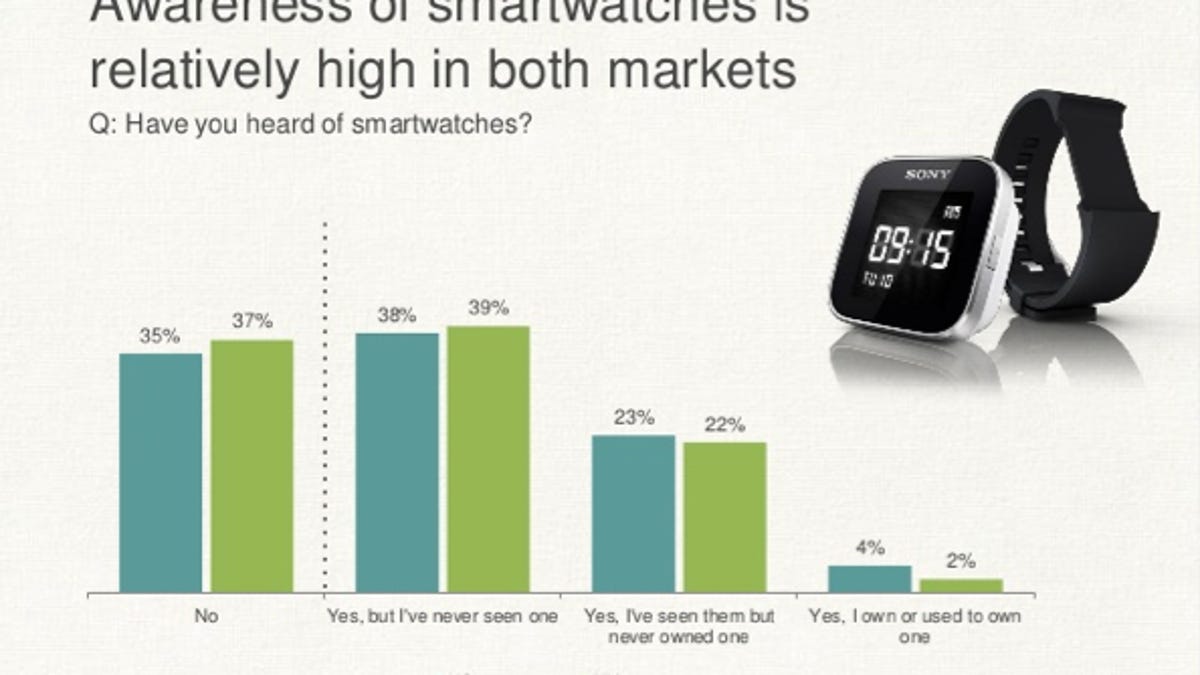Smartwatches: Staying power or fleeting technology?
In the burgeoning world of smartwatches, it's unclear if people are actually buying these devices.

While several companies are jumping on the smartwatch bandwagon, it's not clear who exactly is buying these wearable picture-taking, texting, time-telling machines. Or, for that matter, if this wearable fad is here to stay.
A study released Thursday by consumer analytics firm On Device Research and telecoms analyst firm CCS Insight shows that many people have heard of smartwatches and other wearable technology, but ownership is still fairly low. The study's data is based on a survey of more than 1,500 smartphone owners in the US and UK.
"We are surprised by how many people are aware of wearable technology," On Device Research marketing manager Siim Teller said in a statement. "Sixty-five percent of respondents had heard of smart watches and over 50 percent knew about wearable fitness trackers. Nearly half of those surveyed in the US had heard about Google Glass. This is very high for a product that isn't even commercially available at the moment."
Of those people that own a smartwatch, many lose interest in the gadget after a short while. According to the study, 40 percent of smartwatch owners stop using them because they forget or get bored with the technology.
Over the past year, a handful of companies have launched different versions of smartwatches. Samsung launched its Galaxy Gear last month and Pebble just started selling its version of the wearable. Other devices from makers such as Sony, Martian, and Qualcomm have also popped up, along with ongoing rumors that Apple is developing an iWatch.So, who's buying these things? According to the study, it's mostly gadget-loving men.
On Device Research and CCS Insight say that for companies to reach more customers and garner staying power within the finicky gadget market, they need to bring prices down and appeal to a broader market.
"Companies making these devices need to ensure their products remain exciting for users once the initial enthusiasm ebbs," CCS Insight chief of research Ben Wood said in a statement. "Furthermore, wearable devices need to be comfortable, attractively designed, easy to use and have great battery life."

